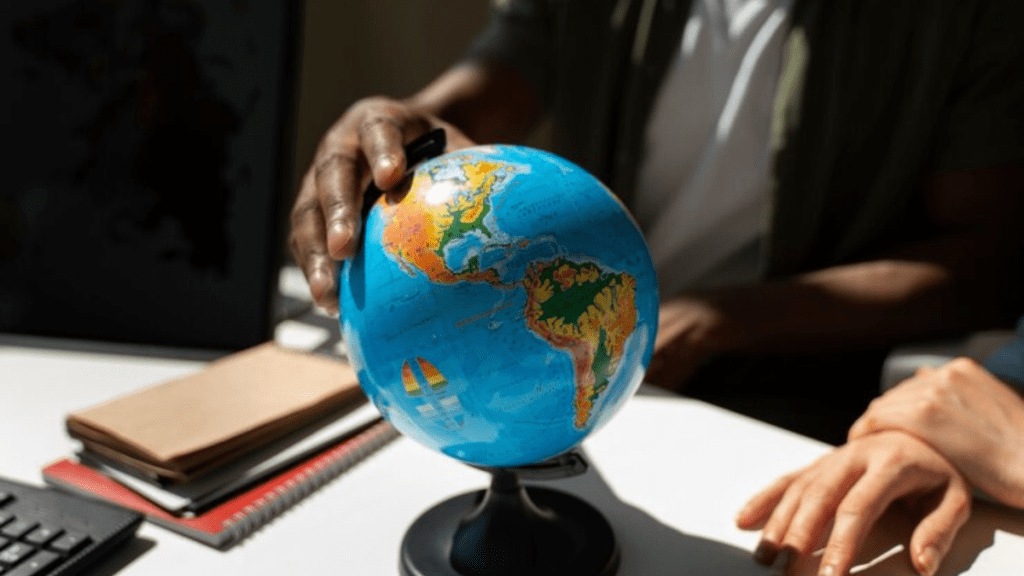By Radhey Tambi
On April 17, 2024, Mohamed Muizzu completed his sixth month as the President of Maldives. Even before his actual appointment to the country’s highest political office on November 17, 2023, there were binary talks in the islands’ air – the extent to which his foreign policy would be pro-China or anti-India. Especially because his electoral win was largely based on an ‘India Out’ campaign. The optics turned out to be true to a large extent as one could witness his relentless and unflagging efforts in maintaining an anti-India posture. Concomitantly toward the end of the six months, the thawing of ties with India was also seen. But all the momentum of Muizzu of meandering between China and India will be put to rest and tested in the upcoming Parliamentary elections scheduled for April 21, 2024.
The discordant and discrepant manner of Muizzu’s work style was first mirrored when he announced that India must take back all its military personnel who were involved in the operation of the Dornier aircraft, and Dhruv helicopter gifted by India. That was just a trailer, but the norm continued to follow. Breaking from usual tradition, Muizzu visited Turkiye for his first overseas destination and signed a deal to buy Turkish drone to monitor its vast EEZ. This had two implications, first a strong Islamic tilt in his policies that would be seen in the times to come. And second, the reflection of confidence in the Maldives to diversify its defence imports and engagements.
The next big insight into Muizzu’s foreign policy was seen in his visit to China, a country that has been toasting all sides for greater influence in the Indian Ocean Region. Concomitantly, having some rough patches in its ties with India, a proximate power that has been already enjoying considerable influence in the same area since its independence and before. In Beijing, he signed agreements on matters that juxtaposed with New Delhi’s area of convergence like food security with Male, or areas where India has been a leading player like digital economy, tourism, and disaster risk reduction. The blaze of anti-India mode was not extinguished. Soon after his return, he remarked ‘We may be a small country, but that does not give you a license to bully us’, which many claims was pointed towards India.
Diplomatically, too the relationship nose-dived to an all-time low that involved people from both sides when three deputy ministers from the Muizzu government made derogatory remarks against Prime Minister Modi’s visit to the Indian territory of Lakshadweep. Later, Male opted not to participate in the Indian led Colombo security Conclave but showed active participation in China led Indian Ocean Region Forum on Development and Cooperation. Further, it allowed the docking of a Chinese spy vessel, for which India had raised repeated concerns with both Maldives and Sri Lanka, but only the latter agreed to India’s request. The nail in the coffin was put when Male recently, and silently signed a defence agreement with China which will help it secure its EEZ, the role and responsibility in which India had been a dominant and persistent player till now not only for Maldives but also other island nations in the Indian Ocean.
However, despite all these ebbs and flows in the India-Maldives ties, since the incoming of the new President, India has maintained a very mature stance. Not only did India very diplomatically dealt with the issue of military personnel leaving the country, by agreeing to seek a workable solution acceptable to both sides according to the Ministry of External Affairs of India. But also, New Delhi has upheld the diplomatic heft by showcasing patience and accommodation in its efforts to build its relationship with the Maldives. Instead of engaging in tit-for-tat diplomacy, the self-belief in its actions has set the game going for India.
This was seen when Muizzu reached out to India for restructuring of its debt, thereby aiming to bring out a workable solution to pay in the local currency and not dollars. The tourism body of Maldives also visited India this month to make up for the lost Indian tourists, as their numbers went to an all-time low after the remarks made by three of Muizzu’s ministers early this year. Another effort to reset the ties was seen when the Foreign Minister of the Muizzu government thanked India for sending the essential commodities despite the injury in the ties.
All in all the six-month stocktaking of Muizzu’s foreign policy has several important inferences not only for India and China, the two countries that seem to be significant players in Maldives. But also for several other Western and Eastern powers who are working to ramp up their ties with the island nation. First, it would be difficult and nearly impossible for the Maldives to do away with India not only due to the geographical location but also as New Delhi’s influence rises economically and diplomatically. Second, despite the fact as to how many seats Muizzu’s party gets in the Parliamentary elections, the next five years will not be easy for Muizzu. Each turn and twist in his foreign policy will test the balancing act of Male between India and China. At the same time, it will also examine India’s breadth of accommodating Maldives. Third, as it further gets closer to China, this must not be beyond proportion and affect its ties with other regional and extra-regional players as they increase their stakes in the developmental journey of Male. And last, but not the least, Muizzu must follow the ‘Maldives First’ policy in letter and spirit, and keep the interest of all Maldivians and the Indian Ocean residents at the center.
The author is Research Associate, Center for Air Power Studies.
(Disclaimer: Views expressed are personal and do not reflect the official position or policy of Financial Express Online. Reproducing this content without permission is prohibited.)


